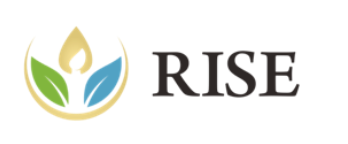Rollins Announces Free Public Health Course on Abortion

Despite major gains in sexual and reproductive health and gender equity worldwide, abortion remains a topic rife with misinformation, disinformation, and influenced by non-evidence-based policies. Coming soon, the Rollins School of Public Health at Emory University will launch the first massive open online course (MOOC) of its kind: Public Health Approaches to Abortion, a free public health class that aims to provide a general audience with accessible and foundational knowledge on the topic of abortion that will be open to everyone within the Emory community and beyond. This announcement arrives on the first anniversary of the Supreme Court’s decision to overturn Roe v. Wade.
“In many curricula [around the world], abortion is not taught comprehensively and is siloed, yet it is an integral piece of the reproductive health life cycle. The fact that the Dean of Rollins, Daniele Fallin, initiated this course and recognized the need for education on this subject speaks volumes,” said Anna Newton-Levison, PhD, MPH, lead co-instructor and a Postdoctoral Fellow with the Center for Reproductive Health Research in the Southeast (RISE) at Emory.
“Silence breeds misinformation and fear. We are trying to break that silence—particularly in a region like the Southeast where there are a lot of restrictions around abortion—with this evidence-based, educational product that can be easily accessed,” said Subasri Narasimhan, PhD, MPH, lead co-instructor, assistant professor at the Hubert Department of Global Health, and faculty member affiliated with the RISE Center.
The MOOC, offered via online learning platform Coursera, was designed by Narasimhan and Newton-Levison to suit anyone, from faculty and alumni across various disciplines to undergraduate students and others interested in becoming more informed on the subject.
“We’re hoping to present all of the existing expertise at Emory and the many faculty here who have been working in the reproductive health space for over a decade to give folks a solid place to understand the basics of this subject,” Newton-Levison said.
Highlighting expertise from 11 Rollins faculty, alumni, and community collaborators, the lessons provide a 101 look at abortion from public health, medical, policy, social, and human rights perspectives. It features seven modules focused on key topics including:
- What is Abortion?
- Clinical Procedures
- History of Abortion & Policy in the U.S.
- Access to Abortion Care
- Abortion Stigma
- Epidemiology & Measurement
- Maternal Mortality & Abortion
Students will benefit from diverse learning opportunities through lectures, case studies, and self-reflection activities, as well as additional resources and readings beyond the coursework. They will be introduced to several frames for thinking about abortion, including those of reproductive justice, rights, and health; life course; and health equity.
By the end of the modules, students will be able to examine their belief systems and to identify and critique common misunderstandings related to abortion.
“My hope is that this will give all people time to reflect on their own history and what their biases are. Hopefully, we can move this topic from being squarely in the political space to a more public health, science, and evidence-based space,” said Narasimhan, who also teaches Rollins’ long-running graduate-level Global Elimination of Maternal Mortality from Abortion course.
Sign up to be alerted when the Public Health Approaches to Abortion course is open for enrollment on the RISE website here.
